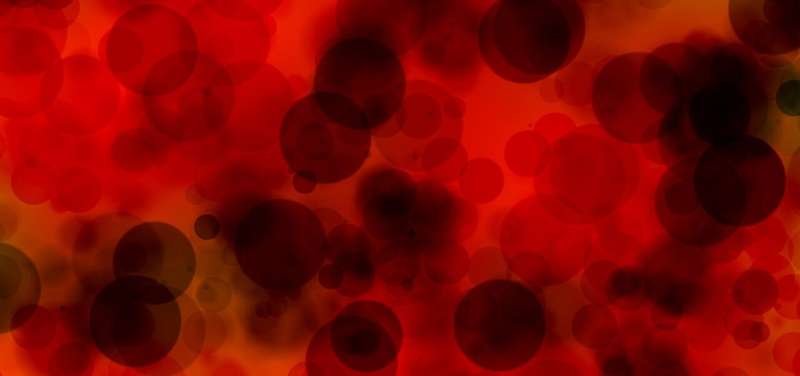
Heart abnormalities are common complications of sickle cell anemia (SCA) that can contribute to severe disease symptoms and even death. A study published today in the journal Blood Advances is the first to find that hydroxyurea therapy can improve or even reverse cardiac complications in individuals living with SCA. Researchers say the findings underscore the need for early screening for sickle cell-related cardiac abnormalities, even among individuals not currently showing any symptoms.
Sickle cell anemia is a form of sickle cell disease (SCD) which includes the HbSS and HbS-βº thalassemia genotypes. SCD is the most common inherited red blood cell disorder in the United States, affecting an estimated 100,000 people. According to the Centers for Disease Control and Prevention, SCD affects one out of every 365 Black or African American births and one out of every 16,300 Hispanic American births.
In individuals living with SCD, the red blood cells, which are normally round, become crescent or sickle-shaped, and then break apart, clump together, and stick to the walls of blood vessels. This blocks the flow of blood, which can cause not only cardiac complications but also severe pain, joint and organ damage, and stroke. Hydroxyurea, one of the four drugs currently approved by the U.S. Food and Drug Administration to treat SCD, is believed to mitigate SCD symptoms by preventing the formation of sickled cells, but its precise mechanism of action is still not fully understood.
The researchers evaluated data from 100 children and young adults (aged 3-22) receiving care for SCA at Cohen Children’s Medical Center’s Pediatric Sickle Cell Program in New York. Half of the study participants were found to have enlargement or thickening of the left ventricle (LV) of the heart. Pulmonary hypertension, a type of high blood pressure affecting the lungs and the right side of the heart, was also reported.
“Our study shows once again that cardiac abnormalities are extremely common in children and young adults living with sickle cell anemia,” said study author Arushi Dhar, MD, of Cohen Children’s Heart Center and member of the Feinstein Institutes for Medical Research. “Anemia reduces the oxygen-carrying capacity of blood in the body. As a result, in people living with SCA, the heart enlarges, thickens, and works harder at rest.”
The enlargement of the heart and the impaired ability to relax the muscles of the heart, a condition known as diastolic dysfunction, can cause heart disease and heart failure if left unchecked. Yet the study also offers promising new evidence that treatment with hydroxyurea could lead to improvement and even reversal of cardiac abnormalities in individuals with SCA.
Sixty of the study participants were taking hydroxyurea, and the researchers noted that there was no difference in the level of LV enlargement for that group of patients as compared to the group not taking the drug. However, they found that cardiac outcomes were better among individuals taking hydroxyurea for a longer time.
“When we compared the group that had been on hydroxyurea treatment for less than one year to the group that had been on treatment for more than one year, we found that the people who had been treated for longer were less likely to have an enlarged heart or a thickened heart,” said Dr. Dhar. “This finding set the stage for the next phase of our research, where we discovered that cardiac measures were actually improving over time on hydroxyurea.”
The next phase of the study was a longitudinal analysis in which Dr. Dhar and her team assessed echocardiograms (ultrasound tests of the function of the heart’s muscles and valves) performed over time on the patients receiving treatment with hydroxyurea. They found that the longer the patient had been taking hydroxyurea, the less likely they were to show LV enlargement or thickening. In fact, there were 34 patients who had an abnormal LV mass when first tested, and of these, 18 had a normal LV at their most recent visit.
The researchers say the study highlights the need for early screening and treatment initiation for this patient population. “We need very close cardiac monitoring of children and young adults with SCA,” said Dr. Dhar. “Even for asymptomatic individuals, screening should start at a young age so we can catch any abnormalities early and start treatment with hydroxyurea as soon as possible.”
Source: Read Full Article
